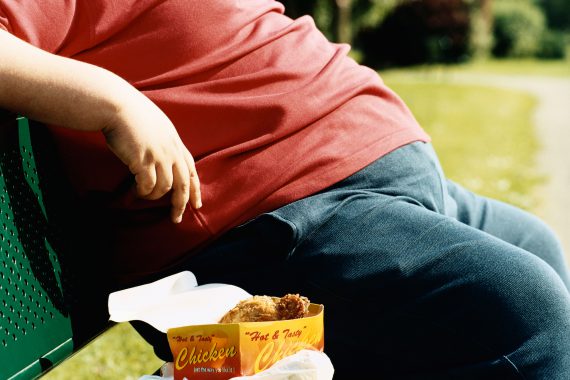GP-led CBT weight-loss programme ‘beats standard approach’

A ‘task-based’ weight-loss programme based on cognitive behavioural therapy and held in GP practices proved more effective than a standard nurse-led approach, researchers have reported.
The team at Queen Mary University of London studied the Weight Action Programme at two GP practices in East London, and found patients who took part lost around two kilos more than others who followed a ‘best-practice’ nurse-led programme.
The study – sponsored by the National Institute for Health Research Health Technology Assessment Programme – included 330 patients with a BMI of 30 kg/m2 or higher.
Patients who received the Weight Action Programme were invited to eight weekly group sessions, where they received diet and exercise advice and were encouraged to set personal goals on weight and food intake, and received CBT-based motivational interventions, which encouraged them to set themselves concrete tasks, such as increasing pedometer targets.
Those assigned to the standard weight-loss programme received four individual sessions with the practice nurse over a period of eight weeks, where they were given diet and exercise advice, as recommended in NHS ‘Change4Life’ materials.
After one year, patients on the task-based programme had lost an average of 4.2 kg in body weight compared with just 2.3 kg in the nurse-led one-to-one group. They were also more likely to have lost at least 5% of their body weight, with two-fifths achieving this compared with a quarter of patients on the nurse-led programme.
The study authors calculated that this showed the group Weight Action Programme would be cost effective, at £7,742 for each QALY gained.
The team concluded that the tasked-based group programme was ‘more cost-effective than nurse-based treatment, although both would be deemed highly cost-effective based on the current NICE recommendations’.
The researchers noted that up to now, weight loss programmes based in primary care have not been found to be very effective by studies. However, NICE already recommends GPs refer people to group programmes if they are available on the basis they tend to be more cost efficient.
Implementing the Weight Action Programme in primary care could be fairly simple, they said, as ‘it can be delivered by auxiliary staff, such as health trainers, with just two days of training and with relatively little specialist or costly equipment’.
Health Technol Assess 2016; available online October
Pulse October survey
Take our July 2025 survey to potentially win £1.000 worth of tokens

Visit Pulse Reference for details on 140 symptoms, including easily searchable symptoms and categories, offering you a free platform to check symptoms and receive potential diagnoses during consultations.



 Oviva’s fully remote Tier 3 Weight Management programme
Oviva’s fully remote Tier 3 Weight Management programme






